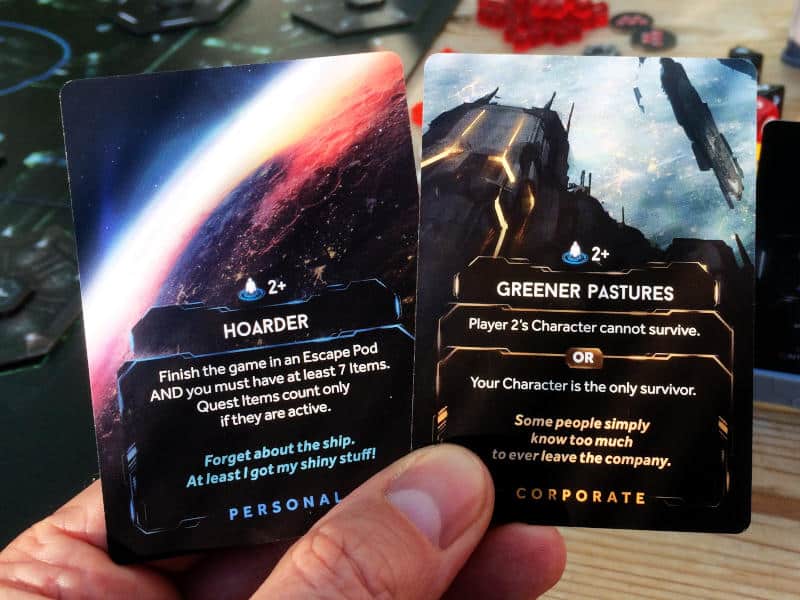There's a board game that I got for my birthday the year before last, called Nemesis. You don't have to know too much about it, save that it is one of those secret role games. At the start of the game, everyone appears as though they're on the same team, but as the game develops, people may or may not stay on that team. You are dealt two objective cards at the start of the game, and when you discover your first alien, you have to ditch one of those two objectives, and keep the other, thereby deciding which of those objectives is going to be how you win.
The objectives are divided into two categories: Personal and corporate. One of those will be a thing that you have to do for your own personal wellbeing, and the other is what you do for the bigger picture; for the team, for the company, for whatever.
Now, I bring this up to you because of the interesting apocalypse that Jesus brings up in the Gospel reading - he moves from talking to the daughters of Jerusalem, to talking to the thieves on the cross. And that move is a move from a corporate apocalypse to a personal one. That corporate apocalypse is the apocalypse where everything ends. The sky rolls back like a scroll, the sun is like sackcloth, and the moon as blood. Dogs and cats living together in peace and harmony, mass hysteria. That's the one that you think of when you think of apocalypse, right? How Jesus comes back to judge the living and the dead. Everything finishes and wraps up, and it's all over. That's the corporate apocalypse, because it hits everyone, all at once, and nobody is spared.
Of course, there is a personal apocalypse too, you know. And the reading that we had from Sunday is jarring that way - the two thieves on the cross are not exactly all that concerned at that moment about the corporate apocalypse. It's not a big deal for you to work through exactly when the end of all things is going to roll around, if you're going to be dead in a few hours anyway. That is, unless the entire apocalypse is going to happen in the next 90 minutes, it's not going to matter too much. Jesus essentially gets two requests from the two men. The one says to him 'if you're the son of God, take yourself off this cross, and take us down with you.' Now, that's a request to get off the cross, yes, but to step back into the world that is leading you back to the same place. By stepping back into the world, you're not avoiding the personal apocalypse forever; you're delaying it for a while. There's a zero percent chance that stepping down off that cross grants you immortality permanently. But, that fear of the personal apocalypse is enough to drive you off that cross, and back into the world. In other words, you're not ready to die, but honestly, when will you be?
What's the right time for you, in your opinion. What's the right time for you to wrap it all up, to say 'yes, I'm good now. That's enough time. It's enough time with my family and friends, I've seen all I want to see, I think I'm good now.' Sadly, the one thief wanted to delay the personal apocalypse, but of course, even if you do, the corporate one is coming for you.
But what the other thief is asking for is a removal from the system altogether. He's well aware that escaping the apocalypse on the cross is not an escape forever, but just a delay. The fun is going to find you eventually anyway. There's no long term escape, nothing permanent while you're still in the system. Instead, he asked Jesus to remember him, when He comes into His kingdom. That request is one to not just get you off the cross for a few years, but to get you out of the problem permanently, eternally.
I'm going to go back to this scene from the movie Tremors. The cast are in a bad state, and are going to have to get out of it by throwing a bomb the way they want to run. But they only have one more bomb, enough to get them to the rocks that they were sitting on, but not enough to get them to safety. The conversation between them was that even if they could get back to the rocks, they'd die of thirst in three days. You're going to have to come up with a better solution than that.
Ultimately, if you're looking to avoid the apocalypse completely, not just delay it for a while, you're going to look to not just get back to the rocks, but to make the problem to away altogether by killing the graboids. If you're looking to avoid being lost eternally, you're going to look towards Jesus bringing you into his kingdom, where rust and rot don't corrupt or destroy. Where the scarcity of this life is not something that can eat in. Where the apocalypse won't despoil nor ruin. If you're going to escape, you're going to have to escape completely.

